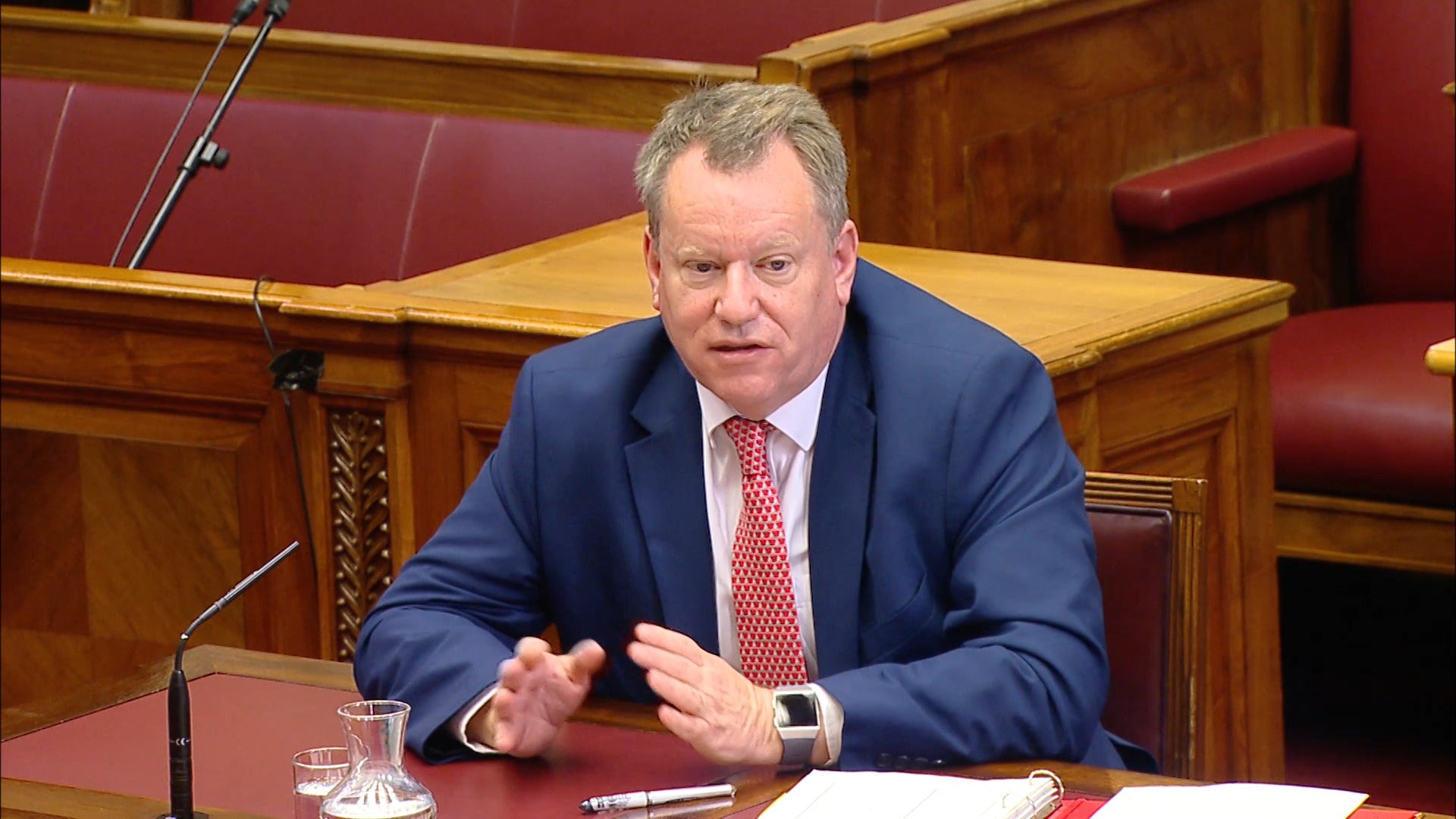
Post-Brexit arrangements on enforced border checks and restrictions on products such as chilled meat exported from mainland Great Britain to Northern Ireland have been postponed indefinitely.
The UK has unilaterally extended the grace period, due to end next month, whereby goods can be exported to the province from Great Britain without additional checks and inspections under the so-called Northern Ireland Protocol.

Discover B2B Marketing That Performs
Combine business intelligence and editorial excellence to reach engaged professionals across 36 leading media platforms.
The extension was announced by government minister Lord David Frost, who is leading the post-Brexit negotiations with the European Union.
He said: “To provide space for potential further discussions and to give certainty and stability to businesses while any such discussions proceed, the government will continue to operate the Protocol on the current basis. This includes the grace periods and easements currently in force.”
Since Brexit, how Northern Ireland trades with the British mainland has been governed by the Northern Ireland Protocol. This is a dispensation that keeps the border between Northern Ireland and the Irish Republic open but does not allow goods to cross south into the EU member state without checks.
The Protocol means there are already some controls on goods moving across the Irish Sea from Great Britain to Northern Ireland. This has resulted in increased paperwork and border checks for UK retailers and food manufacturers supplying Northern Ireland outlets.

US Tariffs are shifting - will you react or anticipate?
Don’t let policy changes catch you off guard. Stay proactive with real-time data and expert analysis.
By GlobalDataIndustry fears that checks would increase after tougher rules were introduced after the grace period ended in October, and that chilled meat products such as sausages, minced beef and pies would be banned from export to the province from the UK mainland, have been allayed for the time being as a result of the UK government’s action.
No new deadline has been set for the completion of talks between the UK and the EU, which have reached a stalemate.
The UK’s The Guardian newspaper, quoting a government source, said the new extension was “coordinated, if not agreed upon” with the EU.
It suggested the EU will hold back from launching legal proceedings over the extension, with sources saying a number of key EU leaders felt there was little to gain from confronting Boris Johnson’s government.
The BBC reported the European Commission as saying it noted Lord Frost’s statement and continued to stress that the Withdrawal Agreement is an international agreement.
“Both sides are legally bound to fulfil their obligations under the Agreement,” it said, and reiterated it would not agree to a renegotiation of the Protocol.
Just Food asked UK food industry bodies The Food and Drink Federation (FDF) and the British Meat Processors Association (BMPA) for their response to the extension of the grace period.
Luke Hindlaugh, senior EU and international trade executive at the FDF, said:
“The FDF welcomes the news that the UK government has listened to industry’s concerns and recognised the significant problems we have been raising regarding the Northern Ireland Protocol and food and drink movements.
“Both sides now need to move beyond rhetoric and create practical solutions that work for both industry and consumers in NI. Without these solutions, costs will increase and the level of choice for consumers will diminish, shutting GB suppliers out of the NI market. The FDF has set out to government a number of solutions that would ease this process and will continue to work with Defra [Department of Environment, Food and Rural Affairs] to help resolve these issues.”
Nick Allen, chief executive of BMPA, said: “The UK government’s unilateral decision to dispense with any deadline for fully implementing the Withdrawal Agreement has averted the most severe consequences, but it hasn’t solved the current disruption to trade with Northern Ireland. For now, it seems that the European Commission is agreeing to waive any further legal action on infringements against the Northern Ireland Protocol but, if a compromise cannot be found, this won’t continue indefinitely.
“One solution that has been mooted is for a digitally-enabled facilitated movement scheme, but this doesn’t solve the main problem; it only digitises it. All the new post-Brexit documents will still be needed to move goods from Great Britain to Northern Ireland. They will all still need to be signed off by a vet and they will all still need to be checked by border control staff. Digitising the paperwork would perhaps allow for pre-clearance away from the border but it’s a small advantage compared to all the disadvantages the new export system has imposed.”
“For a long time now we, along with other prominent figures, have been advocating for a common veterinary agreement which would remove the need for all the extra paperwork and instantly knock down the most damaging barriers to trade both with Northern Ireland and with the rest of the EU.”



